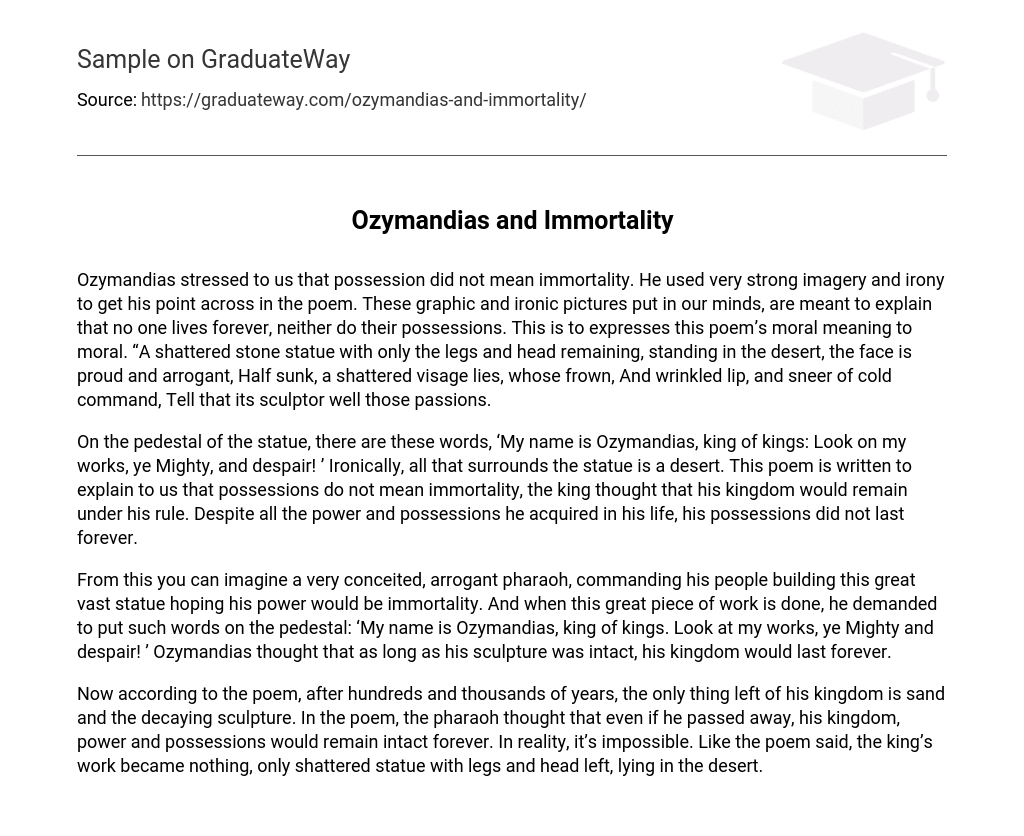Ozymandias stressed to us that possession did not mean immortality. He used very strong imagery and irony to get his point across in the poem. These graphic and ironic pictures put in our minds, are meant to explain that no one lives forever, neither do their possessions. This is to expresses this poem’s moral meaning to moral. “A shattered stone statue with only the legs and head remaining, standing in the desert, the face is proud and arrogant, Half sunk, a shattered visage lies, whose frown, And wrinkled lip, and sneer of cold command, Tell that its sculptor well those passions.
On the pedestal of the statue, there are these words, ‘My name is Ozymandias, king of kings: Look on my works, ye Mighty, and despair! ’ Ironically, all that surrounds the statue is a desert. This poem is written to explain to us that possessions do not mean immortality, the king thought that his kingdom would remain under his rule. Despite all the power and possessions he acquired in his life, his possessions did not last forever.
From this you can imagine a very conceited, arrogant pharaoh, commanding his people building this great vast statue hoping his power would be immortality. And when this great piece of work is done, he demanded to put such words on the pedestal: ‘My name is Ozymandias, king of kings. Look at my works, ye Mighty and despair! ’ Ozymandias thought that as long as his sculpture was intact, his kingdom would last forever.
Now according to the poem, after hundreds and thousands of years, the only thing left of his kingdom is sand and the decaying sculpture. In the poem, the pharaoh thought that even if he passed away, his kingdom, power and possessions would remain intact forever. In reality, it’s impossible. Like the poem said, the king’s work became nothing, only shattered statue with legs and head left, lying in the desert.





